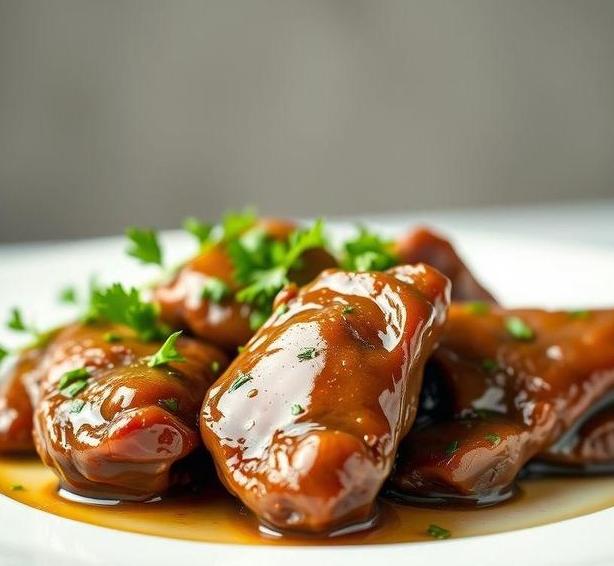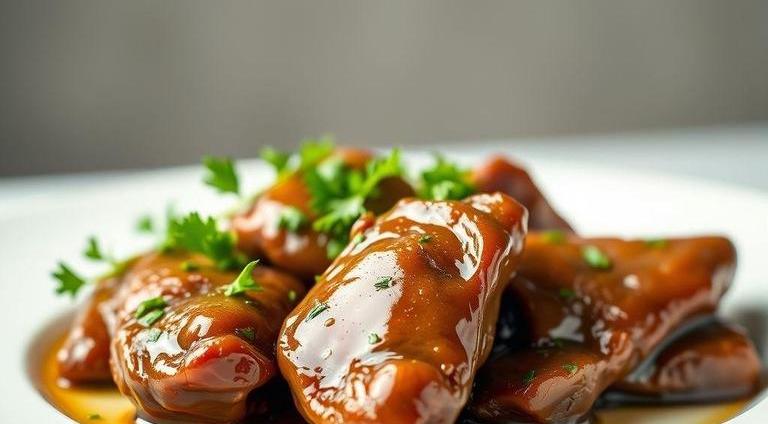Chicken livers are a highly nutritious and flavorful ingredient, often found in traditional dishes such as pâté, stir-fries, and various hearty stews. Packed with protein, iron, and essential vitamins like vitamin A and B12, chicken livers are a versatile addition to many cuisines. However, being a highly perishable food item, they require proper handling, storage, and care to ensure their safety and maintain their quality. So, the question arises-how long can chicken livers last, and how do you tell when they’ve gone bad? Let’s dive deep into the world of chicken liver storage and spoilage, exploring the factors that influence their shelf life and how to keep them fresh and safe for consumption.
Can Chicken Livers Go Bad?
Yes, like most fresh meats, chicken livers can go bad. Being a perishable organ meat, chicken livers are particularly susceptible to spoilage due to their high moisture content and delicate structure. The main causes of spoilage are bacteria growth, oxidation, and enzyme activity, all of which can degrade the livers, resulting in an unpleasant odor, texture, and taste. If not stored properly, chicken livers can harbor harmful bacteria such as Salmonella or Campylobacter, which can lead to foodborne illnesses.
To prevent chicken livers from going bad, it’s essential to handle them with care from the moment you bring them home until you cook or freeze them. This includes checking their freshness before use, storing them correctly, and keeping them in a clean environment. The next sections will break down everything you need to know about the shelf life of chicken livers, how to spot signs of spoilage, and how to store them to extend their usability.
Shelf Life For Chicken Livers

The shelf life of chicken livers depends on a few crucial factors, such as how fresh they were when purchased, the storage conditions, and whether they’re kept in their original packaging or not. Here’s a breakdown of typical shelf lives for chicken livers under various conditions:
-
Refrigerated Fresh Chicken Livers
- Shelf life: 1 to 2 days
- After purchasing fresh chicken livers, they should be cooked or frozen as soon as possible. They can last up to 2 days in the fridge if stored properly, but the sooner you cook them, the better.
-
Frozen Chicken Livers
- Shelf life: 3 to 4 months
- Freezing chicken livers is the best way to extend their shelf life. When stored in an airtight container or freezer-safe bag, chicken livers can maintain good quality for up to 4 months. Beyond this, they may still be safe to eat, but their texture and flavor may start to degrade.
-
Cooked Chicken Livers
- Shelf life: 3 to 4 days (refrigerated)
- Once cooked, chicken livers can last for up to 4 days in the fridge. If you plan to keep them for longer, freezing is your best option. Always store them in an airtight container to avoid contamination and moisture loss.
Common Signs Of Spoilage
Knowing how to spot spoiled chicken livers can save you from accidentally consuming unsafe or unappetizing food. Here are the most common signs of spoilage to watch out for:
- Off or Sour Smell: Fresh chicken livers should have a mild, neutral scent. If they emit a strong, sour, or ammonia-like odor, it’s a clear sign that they’ve gone bad. The smell is often the first indication that spoilage has occurred.
- Color Changes: Fresh chicken livers are typically a rich, dark red color. If they turn greenish, brownish, or exhibit any other significant color change, it’s a warning sign that they are no longer safe to eat.
- Slimy or Sticky Texture: When chicken livers start to spoil, they may become slimy or sticky to the touch. This indicates the growth of bacteria and is a sure sign of spoilage. Fresh livers should feel firm and slightly moist, but not slimy.
- Discoloration or Mold: If you notice any visible mold growth on the surface of the chicken livers, it’s time to discard them. Mold can develop if the meat has been improperly stored or left out too long.
- Off Taste: If you’ve cooked the chicken livers and they taste off, sour, or metallic, this could be a sign they were spoiled before cooking. While it’s always best to avoid tasting suspicious food, an unpleasant flavor is a strong indicator that the meat is no longer safe to eat.
How To Store Chicken Livers?

Proper storage is key to ensuring your chicken livers remain fresh for as long as possible. Here’s a comprehensive guide on how to store them:
-
Refrigeration
- When storing chicken livers in the fridge, make sure to place them in an airtight container or tightly wrap them in plastic wrap or foil. This helps prevent exposure to air, which can cause oxidation and spoilage.
- Always store chicken livers in the coldest part of the refrigerator, ideally at a temperature of 32°F to 40°F (0°C to 4°C). Don’t store them in the fridge door, where temperatures fluctuate.
- If you’ve bought packaged chicken livers, check the ’sell by’ or ’use by’ date. Once you open the packaging, however, it’s best to cook or freeze them within 1-2 days.
-
Freezing
- Freezing chicken livers is the best way to extend their shelf life. To freeze, place the livers in a freezer-safe, airtight container or a heavy-duty freezer bag. You can also wrap them tightly in plastic wrap or aluminum foil, but make sure the wrapping is secure to prevent freezer burn.
- For best results, consider portioning out the livers before freezing so you can easily thaw only the amount you need. Make sure to label the bags with the date so you can keep track of how long they’ve been stored.
- If you’re freezing cooked chicken livers, follow the same steps. Store them in an airtight container, and use them within 3 to 4 months.
-
Thawing
- The safest way to thaw chicken livers is by placing them in the refrigerator overnight. If you need them quickly, you can use the microwave or place them in a sealed plastic bag and submerge them in cold water. Never thaw chicken livers at room temperature, as this promotes bacterial growth.
Expert Tips
- Always Check Freshness: When purchasing chicken livers, examine the color, texture, and smell before buying. They should be bright red or deep purple, firm to the touch, and free from any off smells.
- Don’t Leave Livers at Room Temperature: Raw chicken livers should never be left at room temperature for more than 2 hours. This is especially important during warm weather when bacterial growth can occur much faster.
- Cook Thoroughly: Always cook chicken livers thoroughly, as undercooked livers can carry harmful bacteria and parasites. Use a food thermometer to ensure the internal temperature reaches at least 165°F (74°C).
- Avoid Cross-Contamination: When handling raw chicken livers, wash your hands, utensils, and surfaces thoroughly to avoid spreading bacteria to other foods.
- Use Ice for Short-Term Storage: If you’re not planning to cook chicken livers immediately but need to keep them fresh for a short time, placing them on a bed of ice in a shallow pan can help extend their freshness for a few hours.
FAQs
How Long Can Chicken Livers Be Stored In The Fridge?
Chicken livers can be stored in the refrigerator for 1 to 2 days after purchase. To ensure freshness, store them in an airtight container or wrap them tightly in plastic wrap.
Can Chicken Livers Be Frozen For Later Use?
Yes, chicken livers can be frozen. To preserve their quality, wrap them tightly in plastic wrap and place them in a freezer-safe bag or container. They can be stored for up to 3 to 4 months.
How Can I Tell If Chicken Livers Have Gone Bad?
Signs that chicken livers have gone bad include a sour or off smell, a slimy texture, discoloration (such as turning grey or green), and a sticky or tacky surface. If any of these signs are present, discard them.
Can You Eat Chicken Livers Past Their Expiration Date?
It’s not recommended to eat chicken livers past their expiration date. Even if they look and smell okay, the risk of foodborne illness increases. Always check for signs of spoilage before consuming.
What Temperature Should Chicken Livers Be Stored At To Prevent Spoilage?
Chicken livers should be stored at or below 40°F (4°C) in the refrigerator to prevent bacterial growth. If frozen, they should be kept at 0°F (-18°C) or lower.
Can Chicken Livers Spoil If Left At Room Temperature?
Yes, chicken livers can spoil if left at room temperature for more than 2 hours. Bacteria multiply rapidly at temperatures between 40°F and 140°F, making the livers unsafe to eat.
Is It Safe To Eat Chicken Livers That Have Been Thawed And Refrozen?
It is not recommended to thaw and refreeze chicken livers, as this can affect their texture and increase the risk of bacterial contamination. Thawed chicken livers should be cooked immediately.
How Can I Safely Defrost Chicken Livers?
The safest way to defrost chicken livers is by placing them in the refrigerator for 12-24 hours. Alternatively, you can defrost them using the microwave or cold water method if you plan to cook them immediately.
Can Cooking Chicken Livers Eliminate Spoilage?
Cooking chicken livers thoroughly (to an internal temperature of 165°F or 74°C) can kill harmful bacteria, but it will not reverse spoilage caused by improper storage. If chicken livers have spoiled, cooking them will not make them safe to eat.
How Should I Store Leftover Cooked Chicken Livers?
Leftover cooked chicken livers should be stored in an airtight container in the refrigerator and consumed within 3 to 4 days. If you want to keep them for a longer period, freezing is an option, and they can be stored for up to 2 to 3 months.